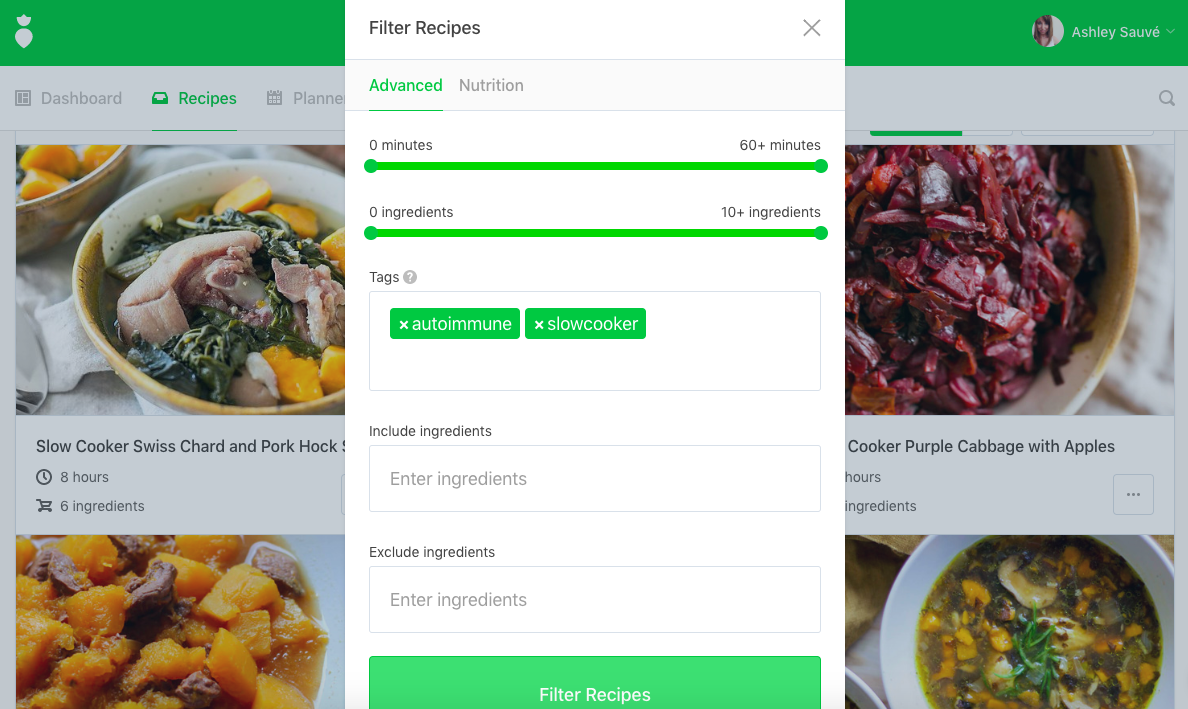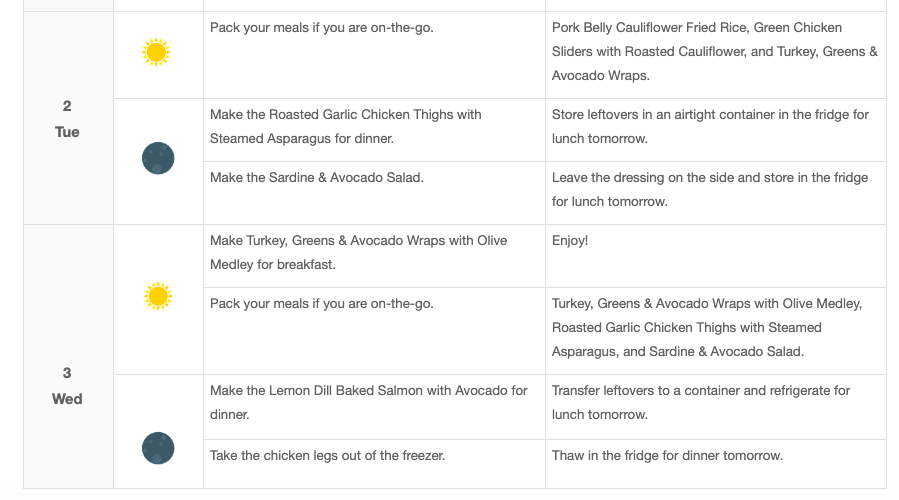For nutrition professionals who specialize in autoimmunity, client compliance can be a huge issue. On one hand, you know the foods your clients are eating can be a huge factor in whether or not they heal their bodies. On the other hand, the autoimmune diet can be difficult to stick to.
We sat down with That Clean Life member, Megan Kelly, Holistic Nutritionist and Certified AIP Coach to learn how she keeps her clients on-plan and successful.
Megan is known as "The Realistic Holistic” and her clients come to her because they know she will make following the autoimmune diet practical and straight-forward for them. If you’re looking for inspiration on client compliance, get ready because Megan shared some incredible tips with us.

Use Food Lists Strategically
One of the most overwhelming things you can do as a nutrition professional is to hand your client a mile-long list of foods to avoid and then send them on their way. Especially with the AIP protocol. Clients can feel totally overwhelmed and discouraged when they are told to give up many of their staple foods.
We're not saying to avoid food lists altogether, but you can use them in a strategic way. Megan has a really great way of doing this:
"I work with my clients in a program called the 12-Week AIP Experience, and during the initial consultation I will send them the foods to eat and foods to avoid lists so they have an idea of what to expect before we sit down and go through their personalized protocol. I have them circle the foods on the list to avoid that they are really freaked out about removing, and circle the foods on the include list that they already enjoy."
This way, clients know they will have a chance to ask questions and talk about their concerns before they start to change their diet. Then Megan will be able to create an autoimmune meal plan that is customized to her clients' unique needs and is realistic for them to follow.
Meet Clients Where They Are
Once she has a solid understanding of her client’s likes, dislikes, and health struggles, Megan sets out to create a meal plan they will absolutely love.
“Sometimes there are foods, like organ meat or rutabaga, that I really want them to eat but they’re not ready for so I won’t push them to start eating them right away. Instead, I’ll incorporate alternatives to show them what is possible.”
Spending money on ingredients and time on cooking for a recipe that doesn’t taste good is not a great client experience. Megan uses recipes from That Clean Life which are all professionally developed and tested. She can easily choose meals that she knows her clients will actually want to eat.
Being able to search for autoimmune recipes that include specific foods they love, use cooking methods like a slow cooker or pressure cooker, or require minimal ingredients or prep time means clients will always get recipes that work for their needs and lifestyle.

Provide Prep Guides With Your Meal Plans
One of the resources Megan finds contributes to her clients' success is prep guides.
“Knowing exactly what to do in the kitchen really takes the guesswork out of eating for people. I love the prep guides from That Clean Life!”
In a prep guide, you’ll want to include daily kitchen tasks for morning and evening so your client is able to stay organized with their meal plan. This way they always know what they have to do next in order to stay on-plan and never miss a beat.

Prep guides are available with all pre-made Programs and can also be customized for personalized meal plans. Learn more about creating prep guides for your meal plans here.
Schedule Frequent Follow-Ups
Megan says that frequent follow-ups make a big difference in whether or not a client stays compliant.
“If we meet weekly, even if it’s just to check-in and see how they’re doing, I see the best compliance. Bi-weekly follow-ups can work too, but if someone tries to do it on their own and follow-up in four or eight weeks, I usually don’t see them succeed.”
Especially during the re-introduction phase of the autoimmune diet, clients need help to understand how foods are affecting their bodies and identify personal triggers.
“This can be a really long process because any time we find a trigger, they need to go back to the strict elimination phase for at least a week to help them recover from that. It’s definitely more work than just staying in the elimination phase! By the time we’ve reintroduced a few foods, we might schedule follow-ups once a month until they’re ready to go off on their own.”

Set Them Up for Long-Term Success
When it comes time to off-board a client, Megan always gives them resources to continue feeling awesome and prevent flare-ups.
“It’s always sad to see them go and I really want to make sure they’re going to succeed on their own so during our final session I give them a customized recipe book to show them what they have to work with. The recipes will include foods they’ve successfully reintroduced and foods they know they can have once in a while.”
Unlike meal plans which are designed to be followed for a week and include a grocery list and prep guide, recipe books help Megan’s clients learn to design their own meal plans long-term when they stop working with her.
Sending clients off with a customized recipe book so they never run out of inspiration is an awesome way to keep clients successful once their sessions end.
“I’ve had clients email me two years after our last follow-up to tell me that they’re still doing great! It’s always great to know that they are feeling so much better. It's hard with autoimmune because there isn't always an obvious outward transformation, but I've had clients with psoriasis all over their face clear up which is amazing to see. For a lot of clients, it's having the energy to not be bedridden anymore."
Interested in learning more about Megan and her approach? Follow her on Instagram.

